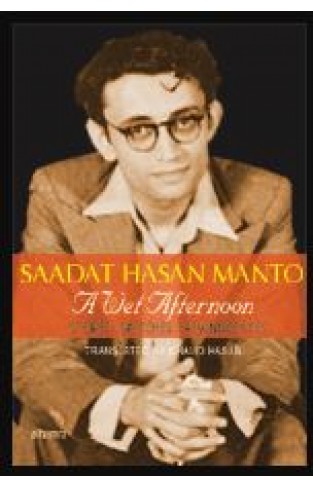A Wet Afternoon
A Wet Afternoon
By:
-
Rs 805.50
- Rs 895.00
- Ex Tax :Rs 805.50
- Price in loyalty points :750
You saved Rs 89.50.
Due to constant currency fluctuation, prices are subject to change with or without notice.
‘What is characteristic of (Manto’s) best work is a wry, sardonic refusal to be shocked. His attitude is that of a man who can no longer be surprised by the things people do to each other, but who nevertheless retains his humanity and compassion.’
Times Literary Supplement
‘There is still no literary rival to Manto.’
The Independent, London
‘Manto is a master storyteller.’
Khushwant Singh
SAADAT HASAN MANTO, the most widely read and the most controversial short story writer in Urdu, was born on 11 May 1912 at Samrala in Punjab’s Ludhiana district. In a literary, journalistic, radio scripting and film-writing career spread over more than two decades, he produced 22 collections of short stories, one novel, five collections of radio plays, three collections of essays, two collections of personal sketches, and many scripts for films. During the war, he worked for All India Radio in Delhi, but the best years of his life were spent in Bombay where he was associated with some of the leading film studios, including Imperial Film Company, Bombay Talkies and Filmistan. He wrote over a dozen films, including Eight Days, Chal Chal Re Naujawan and Mirza Ghalib. The last one was shot after Manto moved to Pakistan in January 1948. He was tried for obscenity half-a-dozen times, thrice before and thrice after independence. Manto’s greatest work was produced in the last seven years of his life, a time of great financial and emotional hardship for him. He died several months short of his 43rd birthday in January 1955 in Lahore.











